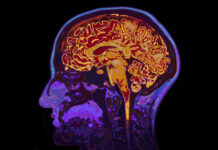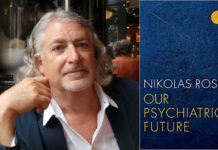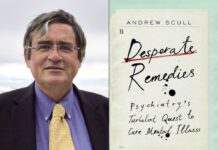Medication-Free Treatment in Norway: A Private Hospital Takes Center Stage
At the Hurdalsjøen Recovery Center in Norway, patients with a long history of psychiatric hospitalizations are tapering from their medications and, in a therapeutic environment that emphasizes a good diet, exercise, and asking patients "what do they want in life," are leaving their old lives as chronic patients behind.
Teralyn Sell and Jenn Schmitz: Breaking Out of the Prison of Prescribing and Finding...
On the Mad in America podcast, Brooke Siem talks with Teralyn Sell and Jenn Schmitz about their journey from working in the prison system to challenging conventional psychiatric narratives in their therapy practice and podcast, The Gaslit Truth.
Why Does a Parent Medicate a Child? An Interview with My Mother
When Brooke Siem was 15 years old, her father died. Her mother, Dee Barbash, sought help for her daughter that led to a prescription for a psychiatric drug. In this interview, they look back on that fateful decision.
Anders Sørensen – Tackling Psychiatric Drug Withdrawal Through Research and in Practice
Anders Sørenson is a Danish clinical psychologist with a special interest in psychiatric drug withdrawal. He has undertaken research which assesses the state of guidance on psychiatric drug withdrawal and paid close attention to tapering methods with the aim of identifying approaches which might make withdrawal more tolerable for people.
Jock McLaren – The Biopsychosocial Model is a Mirage, Time for a Biocognitive Model?
Dr. Niall McLaren joins us to talk of his experiences working in Australian psychiatry and explains why the models that purport to guide psychiatric diagnosis and treatment are not what they seem.
Adverse Childhood Experiences: When Will the Lessons of the ACE Study Inform Societal Care?
The ACE study tells of how adverse childhood experiences increase the risk of psychological and physical problems in adulthood. When will we start incorporating these findings into public health policy and medical care?
Anatomy of an Industry: Commerce, Payments to Psychiatrists and Betrayal of the Public Good
Pharmaceutical companies paid psychiatrists $340 million from 2014 through 2020, corrupting every aspect of the testing and marketing of new psychiatric drugs.
Psychotherapy and Social Change: Mick Cooper on Counseling, Pluralism, and Progressive Politics
Javier Rizo interviews Mick Cooper on the intersection of psychotherapy and social transformation, the pluralistic approach to counseling, and the role of psychology in building a more just society.
“All Real Living Is Meeting”: Brent Robbins on Love, Death, and the Possibilities of...
Psychologist and existential thinker Brent Robbins reflects on a lifetime of work, the limits of psychiatric diagnosis, and what facing mortality has taught him about joy and human connection.
How Mad Studies and the Psychological Humanities are Changing Mental Health: An Interview with...
In this interview with MIA's Justin Karter, psychiatrist Bradley Lewis discusses the value of art, the humanities, and mad studies in shaping a richer understanding of psychological experiences.
One Person’s Journey from Celebrity Medical Model Advocate to Skeptic: An Interview with Rose...
Rose Cartwright is a screenwriter and the author of Pure, a hugely successful memoir which was then turned into a series for Channel Four....
What Does Our Species Require for a Healthy Life? An Interview with Peter Sterling
In his book "What is Health," Peter Sterling asks this provocative question: What does our species require for a healthy life? And can we achieve this with drugs?
Lancet Psychiatry Needs to Retract the ADHD-Enigma Study
Lancet Psychiatry, a UK-based medical journal, recently published a study that concluded brain scans showed that individuals diagnosed with ADHD had smaller brains. That conclusion is belied by the study data. The journal needs to retract this study.
UPDATE: Lancet Psychiatry (online) has published letters critical of the study, and the authors' response, and a correction.
Psychiatry and the Selves We Might Become: An Interview with Sociologist Nikolas Rose
MIA’s Ayurdhi Dhar interviews the well-known sociologist of medicine, Nikolas Rose, about the role psychiatry plays in shaping how we manage ourselves and our world.
Can Psychotherapy Promote Liberation? Addressing Power Dynamics in Clinical Practice
Just as it risks transmitting harmful narratives about pain and distress, psychotherapy might also subvert these very harms in pursuit of genuine healing and transformation.
Johann Hari: Stolen Focus – Why You Can’t Pay Attention
Johann Hari joins us to talk about his latest book Stolen Focus: Why You Can’t Pay Attention, in which he examines the reasons behind our inability to focus and seeks to understand how this crisis affects our wellbeing and society.
Andrew Scull—Desperate Remedies: Psychiatry’s Turbulent Quest to Cure Mental Illness
Sociologist and author Andrew Scull discusses the history of psychiatry's "Desperate Remedies," from lobotomy and the asylum to the failures of today's drugs and the fads of ketamine and deep brain stimulation.
From Freud to Fanon: How Daniel Gaztambide is Redefining Psychoanalytic Practice
In this interview, Daniel Gaztambide discusses how decolonial perspectives can transform psychoanalytic practice.
The Connection Cure: An Interview with Julia Hotz
Julia Hotz is a solutions-focused journalist based in New York City. She is the author of the forthcoming book, The Connection Cure: The Prescriptive...
Screening + Drug Treatment = Increase in Veteran Suicides
For the past 15 years, the VA's suicide prevention efforts have focused on getting veterans screened and treated for psychiatric disorders, with antidepressants a first-line therapy. This effort has caused veteran suicide rates to steadily rise.
Adverse Effects: The Perils of Deep Brain Stimulation for Depression
Hundreds of people have been given remote control deep brain stimulation implants for psychiatric disorders such as depression, OCD and Tourette’s. Yet DBS specialists still have no clue about its mechanisms of action and research suggests its hefty health and safety risks far outweigh benefits.
Chris van Tulleken—Ultra-Processed People: Why Do We All Eat Stuff That Isn’t Food and...
We are joined by Dr. Chris van Tulleken who talks about the science, economics, history, and production of ultra-processed food. We discuss some of the effects of UPF on our brains and bodies and how the food industry positions UPF to dominate our diets.
Psychiatry, Fraud, and the Case for a Class-Action Lawsuit
For decades, psychiatry committed medical fraud when it told the public that antidepressants fixed a chemical imbalance in the brain.
Suicide Hotlines and the Impact of Non-Consensual Interventions
Those struggling with suicidal thoughts may stay silent instead of reaching out to suicide hotlines because they fear non-consensual intervention and the harmful impact of police involvement.
The Clinical, Social, and Cultural Harm of an Iatrogenic Psychiatry
Normal reactions transformed into illnesses, emotions stripped of meaning, & people deprived of their autonomous coping skills and supports.

































